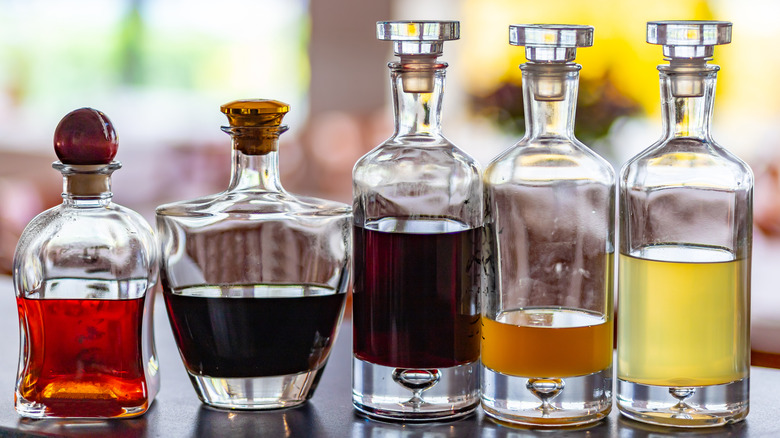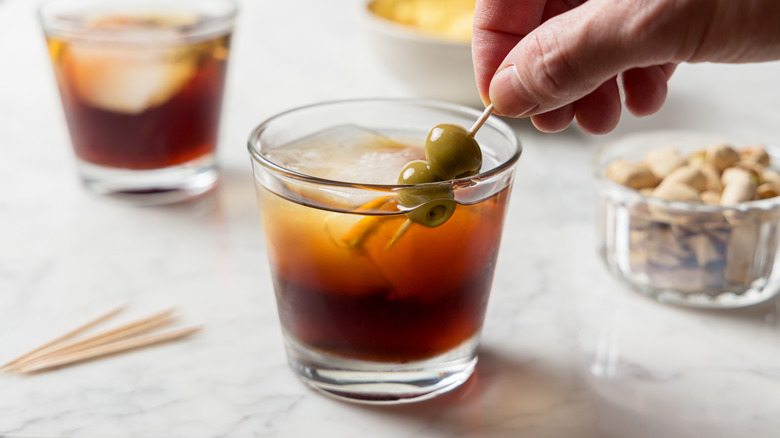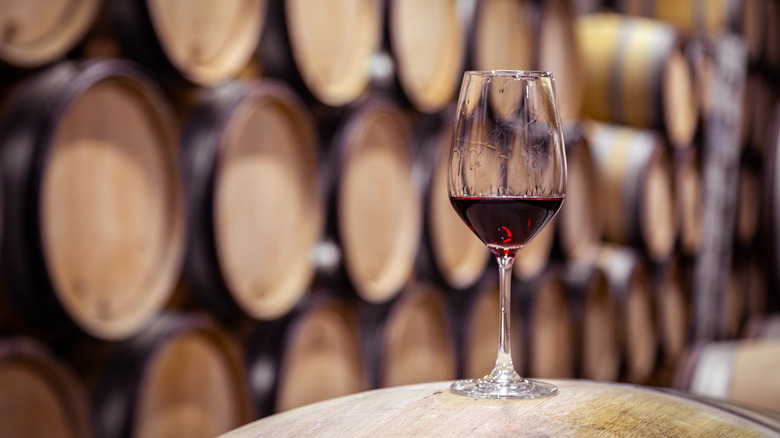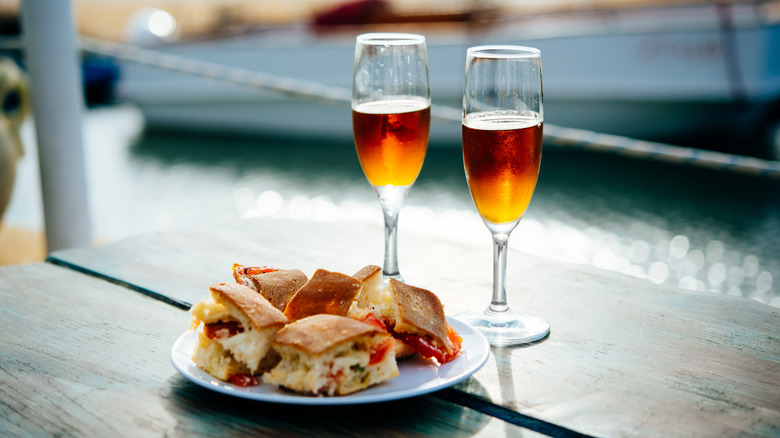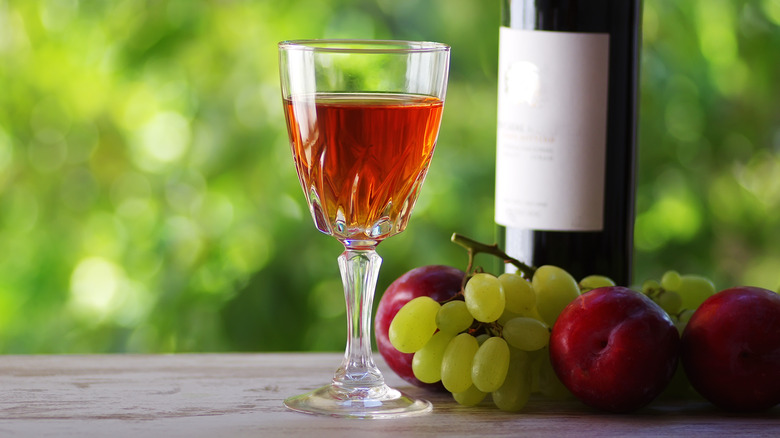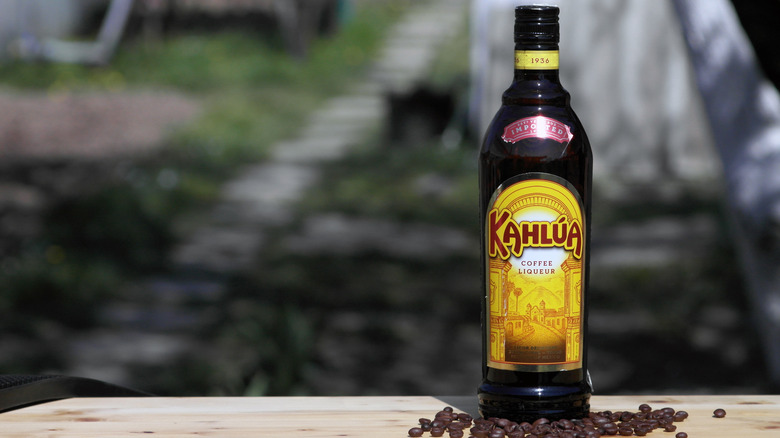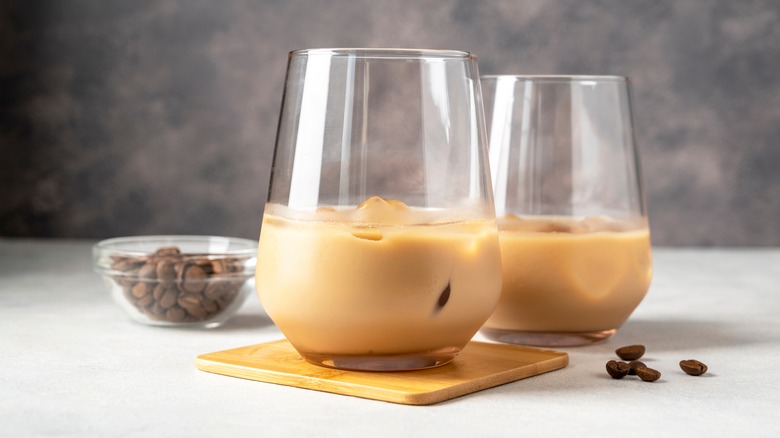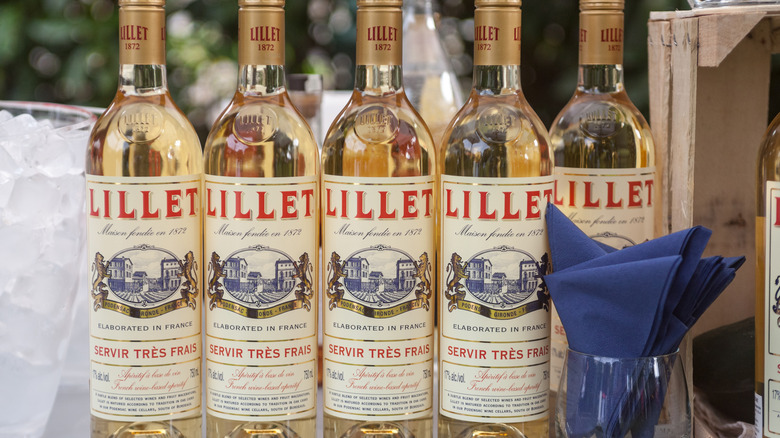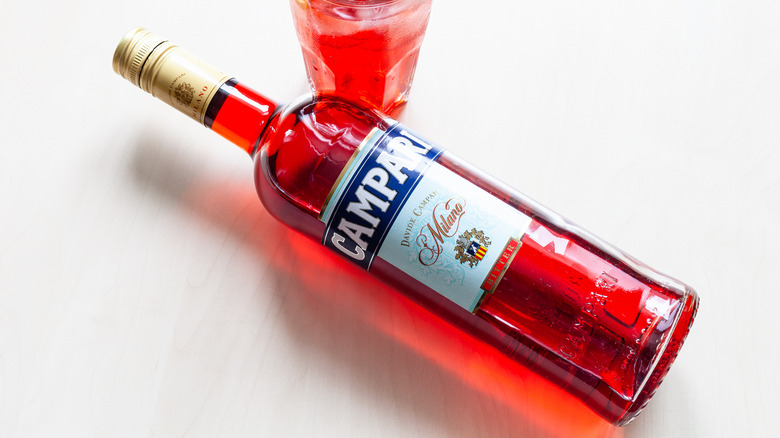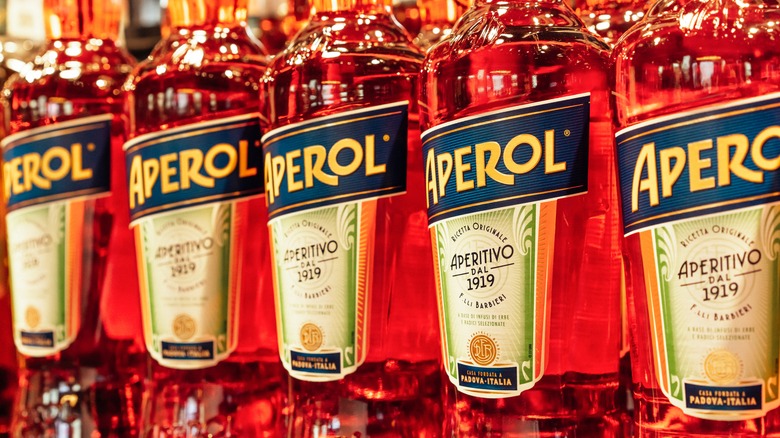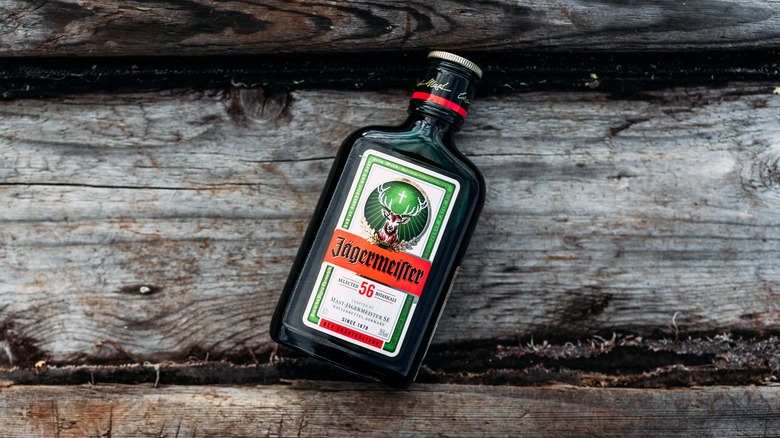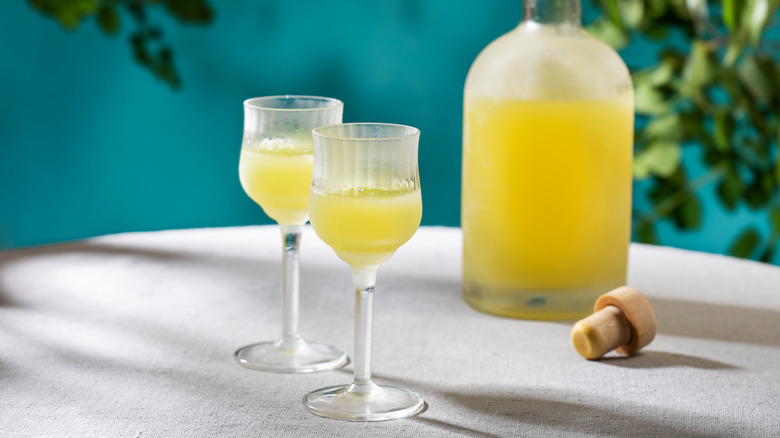12 Liquors You Should Always Keep In The Fridge
Whether you are stocking your home bar or incorporating alcohol into your cooking, buying spirits can be expensive. No matter what bottle you go for and no matter the price, it is always best to get the most out of each purchase. Most liquors can sustain their character at room temperature. Bottles like gin, vodka, whiskey, or other hard spirits with a high percentage of alcohol are naturally preserved indefinitely at room temperature. Meanwhile, spirits like fortified wines, lower ABV liqueurs, and others are best kept chilled to avoid oxidation. Oxidation occurs when a spirit is introduced to oxygen after it is opened, which affects the character of the spirit over time and eventually causes it to spoil.
Refrigerating a spirit that is prone to oxidizing essentially puts the spirit into a hibernation state, and while most will eventually turn bad, refrigeration prolongs a spirit's lifespan for weeks, months, or indefinitely depending on what it is. In case you do not know how to store your liquor or which ones need to be kept in the refrigerator, here are some common bottles that thrive in cold environments.
Vermouth
If you love to keep your home bar well stocked and enjoy mixing cocktails for yourself and guests, you already know the importance of having different kinds of vermouth and buying quality vermouth brands. It is a prevalent spirit and can be found in iconic cocktails like the martini and Manhattan and countless others. Vermouth is at its best when it is fresh, however, so storing it properly will not only extend its shelf life, but it will also result in better-tasting drinks.
Vermouth needs to be refrigerated because it is a fortified wine, which blends the base wine with a neutral spirit, done only to raise the alcohol content. Therefore, because vermouth is not distilled and its alcohol content is usually between 15% and 22%, oxidization will affect the aroma, taste, and overall character of vermouth once it is opened.
Although many brands of vermouth bottle products in aesthetically pleasing bottles, vermouth belongs in the refrigerator. Vermouth will retain its best qualities for up to a month in the refrigerator after opening, at which point it will begin to deteriorate. After three months, it is probably best to replace the bottle with a fresh one.
Port
Port wine is a type of fortified wine that is most commonly enjoyed as a dessert. These wines are made in the Duoro region of Portugal and typically have an ABV similar to vermouth. Because it is a fortified wine, Port wine is susceptible to oxidization the same way regular wines and vermouths are, so keeping it in the fridge is the best way to keep it fresh.
Technically, you do not have to refrigerate port wine to keep it from going bad, as it can typically stay in good shape at room temperature better than regular wine. However, port wine is really meant to be enjoyed in small portions because of its sweetness. Therefore, unless you are entertaining a large group, chances are you will have a good amount of port left over after opening and enjoying it for the first time. In the refrigerator, port will last up to three months before the oxidization will begin to affect its profile.
Sherry
Sherry is another fortified wine, this one coming from the southern region of Spain. There are many different types of sherry, some of which are used for functions outside of drinking. Dry sherries like fino, amontillado, and oloroso sherries are commonly enjoyed as an after-dinner libation, as well as sweet sherries. There are also sherries made specifically for cooking, which can be used in a variety of dishes belonging to different cuisines and are usually added to impart acidity and dry fruit flavors.
Just like vermouth and port wine, any bottle of sherry is susceptible to oxidization, so keeping it in the refrigerator is definitely advised. Buying a bottle of sherry for cooking and leaving it to spoil is particularly common because you may try out a recipe for the first time and only use a tablespoon or two. If you do not refrigerate sherry, the next time you come back to that recipe, you may have to end up buying a whole new bottle.
If refrigerated after opening, a bottle of sherry will last between one week and up to two months, depending on the type of sherry. So if you do not drink sherry often and only use it occasionally for cooking, look for a small bottle instead and always refrigerate.
Marsala
Marsala wine is a fortified wine that is not typically enjoyed directly as a drink but rather in both cooking and baking. There is its obvious function in Italian dishes like veal or chicken marsala, to name a couple, and it is a common ingredient in other Sicilian dishes as well. This spirit gets its name from the place it was created, the town of Marsala in Sicily. It generally has an ABV between 15% and 20%, like most fortified wines.
Marsala is strengthened with brandy and comes in different styles depending on how long it is aged. It has a rich, nutty flavor that is enjoyable when sipped on its own, but it is most commonly used for cooking. After opening, your bottle of Marsala will up to six months in the refrigerator. Unopened, it will last indefinitely, so long as it is kept in a dark and cool location.
Like sherry and other fortified wines commonly used for cooking, you will be able to tell when Marsala wine has gone bad if it smells or tastes very acidic, comparable to vinegar. Also like sherry, if you do not use or drink marsala wine often, it is better to find a smaller bottle so that the risk of waste is lowered.
Madeira
Madeira is yet another fortified wine, this one also hailing from Portugal. Madeira stands out from other fortified wines due to the way it is aged where heat is avoided at all costs. In this case, the casks that hold the Madiera for maturation are placed in the attic of production facilities where the temperature is higher, or the container is heated at a set temperature for several months.
This steady heating method dates back to when Madeira wine would be transported on shipping vessels and exposed to hotter climates, and instead of the wine being ruined, those who drank it saw that the heat actually enhanced its flavor.
Another way Madeira is unique is because it lasts much longer than other fortified wines. In fact, even an opened bottle of Madeira will last indefinitely when stored in the refrigerator. This is because of the unusual heating in its production, which keeps the wine from turning bad in the future. Nevertheless, Madeira should still be kept in the refrigerator as a small amount of oxidization still takes place, and even though it will not ruin the wine, hindering it as much as possible will keep the wine fresher.
Coffee liqueur
A bottle of coffee liqueur should be a mainstay for any home bar. As if the divine experience of an espresso martini is not enough to keep one handy, there are so many other ways to mix drinks that give you the perfect double-kick of alcohol and caffeine. Kahlúa is probably the most common coffee liqueur on the market, but newer brands such as Mr. Black also call for the same storage policy, and that is inside the refrigerator.
Unlike other spirits on this list, coffee liqueur, when stored properly, has a very long shelf life. This is not to say that your bottle will last indefinitely, though: coffee liqueur will last up to two years when stored in the refrigerator. After six months, its character will begin to change, as its aroma and flavor will start to lose their original quality.
This longer lifespan is due to the spirit's higher alcohol content, generally. In Kahlúa's case, for example, the hard liquor inside is rum, which gives the spirit an ABV of 20%. Still, your bottle of Kahlúa or homemade coffee liqueur recipe begins to deteriorate after six months after opening, even when kept in the refrigerator. So, even though it may not be as urgent or time-sensitive as other items on the list, refrigerate in the interest of getting the most out of every bottle you buy.
Bailey's
There may be no better after-dinner drink than a simple glass of Bailey's or any Irish cream for that matter. No matter which brand of spirit you have at home, you will definitely want to keep it in the fridge. This is not only because it will stay in good condition for longer, but this is a spirit best served chilled. Bailey's actually states that its iconic Irish cream does not absolutely have to be kept in the refrigerator as long as it's kept in an environment away from direct sunlight and at a temperature between 32 and 77 degrees Fahrenheit. However, it will not last indefinitely.
No matter how you store your Bailey's, it will last up to two years. Unlike other spirits, determining whether or not your Bailey's has turned can be done simply by noticing any change in smell or consistency.
The alcohol content of 17% does preserve the product for a lengthy amount of time, but Bailey's does contain milk, which will eventually turn the same way all milk does even if it takes two years. Again, while it is not a requirement to keep Bailey's refrigerated, doing so will keep it at the best serving temperature and it will not dilute as quickly when it is poured over ice.
Lillet
Lillet is a French brand based in the Bordeaux region that crafts a fantastic lineup of aperitifs that deserve to be a part of your home bar. Its flagship bottle, Lillet Blanc, is an aromatized wine infused with both sweet and bitter orange peels. The aperitif bursts with a citrus aroma and is as great in a spritz as it is substituted for vermouth in a martini. Lillet Rose is another bottle in the brand's collection and is another versatile fortified wine that is bright and delicious.
Because both Lillet Blanc and Lillet Rose are aromatized wines, just like vermouth, they are best kept in the refrigerator. Both products have an ABV on the higher end of the category with an alcohol content of 17%, which makes for longer shelf life, but the vibrant and flavorful character of each product is the best-taken advantage of at its full capacity.
Unopened, Lillet products will last indefinitely as long as they are stored in a dark and cool location — the same as any table wine. After the seal is broken, however, its lifespan shortens sharply. Keeping it in the fridge will keep Lillet at its best for at least four weeks, and up to six, after which its quality will begin to decline. Lillet is another brand of spirits that should be enjoyed chilled anyway, no matter its application, chilling the bottle is always the best practice.
Campari
Campari is one of the most iconic spirits brands in the world. This timeless Italian red bitter was invented back in 1860 and has been a staple in Italian drinking culture (and beyond) ever since. A bottle of Campari is a must-have for mixing cocktails, as it is an ingredient in drinks like a negroni and its countless variations, the Americano, and many others.
With an ABV of 28%, you would think Campari would do just fine stored at room temperature. However, over time, its profile will begin to change because it's still prone to oxidization. Because of this higher alcohol content, though, Campari kept in the refrigerator will last much longer than other comparable spirits, lasting years as long as it is sealed tightly and kept cool.
Keeping your bottle of Campari in your bar cart will most likely not yield any problems, especially if you use it often. Campari is most commonly used in cocktails with few ingredients, normally as the base. Although it is commonly seen merely as a style of bitters, there are many fresh herbal and botanical notes to be enjoyed and any oxidization will hinder their presence.
Aperol
Aperol is very similar to Campari because it's another Italian herbal spirit. The main difference between Aperol and Campari is that Aperol is not as bitter and has more of an orange-forward profile. Its most common application is in the immensely popular Aperol Spritz but has also been utilized in the invention of modern classic cocktails like the paper plane and division bell. Aperol also has a lower alcohol content, at just 11%. This means that refrigeration is more crucial.
Aperol is a fruit-based aperitif that has a burst of vibrant flavors contributing to its reliable and timeless refreshment. Just like Campari, Aperol is often a central ingredient in the drinks that it is found in. In an Aperol spritz, for example, the integrity of the Aperol immediately reflects the character of the whole drink. The sparkling wine and club soda are merely supporting, effervescent accompaniments, so if the Aperol is not as fresh and vibrant as it should be, the cocktail will suffer.
Once opened, storing Aperol in the refrigerator will keep it fresh for up to three months. As is the case with other spirits on this list, Aperol is most commonly enjoyed chilled, anyway, so keeping it in the refrigerator is more convenient for drink-making anyway.
Jagermeister
Jagermeister is a German herbal liqueur that still closely guards the publicly unknown recipe. It is normally thought of as a cheap party shot for college students, but this spirit made with 56 different botanicals is actually a very complex and refined formula. The alcohol content of Jagermeister might make you think twice about whether or not it needs to be refrigerated, but even with an ABV of 35%, the spirit's high sugar content makes the refrigerator this bottle's rightful home.
Plus, Jagermeister is specifically marketed as being best enjoyed as cold as possible. So, you can even take the chilling a step further and keep your bottle in the freezer for an even smoother experience. In fact, the brand even sells its own shot glasses that are meant to be kept in the freezer along with the bottle.
According to the Jagermeister website, the ideal temperature for enjoying the spirit is -18 degrees Celsius, or about 0 degrees Fahrenheit. After opening, your chilled bottle of Jagermeister should last for several months but always be mindful of the expiration date no matter how you store it.
Limoncello
Limoncello is a staple in Italian households and should be one in yours as well. Perhaps the best part of this liqueur is that you can easily make your own limoncello at home. All you need is a high-proof neutral spirit, sugar, a whole lot of lemons, and patience. Steeping lemon peels in the vodka for a few weeks, straining the out, and adding sugar water are the only steps keeping you from having a delicious and refreshing digestif ready to be enjoyed all summer long. Limoncello can be used to make cocktails, but enjoying it ice cold on its own is the perfect after-dinner drink when the weather gets warm.
The alcohol content of limoncello does vary depending on the producer or recipe, but it generally has an ABV of about 28%. The neutral, high-proof base spirit does act as a strong preserver keeping the sugar from turning. Limoncello will last quite a long time, at least two years, whether or not you keep it refrigerated. The reason for keeping the spirit chilled has more to do with taste versus preservation.
Like Jagermeister, you can even keep Limoncello in the freezer for a frosty, even colder glass. Only 1 ounce or so following a meal is one of the most simple, refreshing ways to kick your digestion into high gear.
